(Note: I wrote this post prior to becoming 100% committed to veganism which I did on 1 January 2015.)
What’s not to love about the taste and texture of cheese? There are so many varieties that one could spend a lifetime happily becoming a cheese connoisseur.
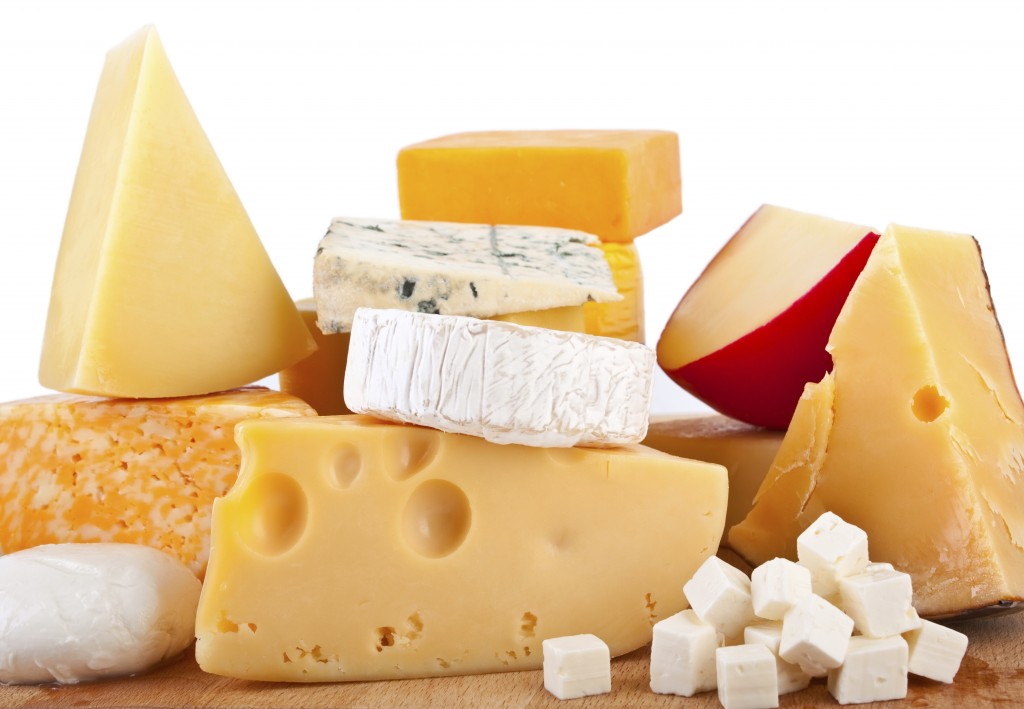
Cheese is often one of the hardest and last foods to go when a person transitions to a fully vegan or plant-based diet. It can be addictive, it’s included in so many recipes and it’s a large, meaningful part of many people’s food life.
[Clarity: Vegetarians enjoy by-products (dairy, eggs) from animals and do not eat animal flesh. Vegans avoid animal flesh and animal by-products.]
Many vegetarians enjoy cheese believing that gathering milk is not harmful or dangerous, certainly not lethal, to the animal. This is a misunderstanding in many cases.
What? Cheese production kills animals?
During cheese production, when the milk is being acidified, the addition of rennet (or rennin) causes the coagulation process. By definition rennet is a complex of enzymes produce in any mammalian stomach and often used in the production of cheese.
Natural calf rennet is extracted from the inner mucosa of the fourth stomach chamber of slaughtered young, unweaned calves. Using rennet from the stomachs of slaughtered pigs has been added to meet the demand of the cheese industry.
There are plant and microbial alternatives to animal rennet, and the food industry often makes it challenging to know which enzymes (plant, microbe or animal) has been used in the process of cheese making.
Look for cheeses that tell you exactly what kind of rennet or enzymes are used. Labels listing just “enzymes” do not reveal the source and may be purposely evasive and vague and are most likely animal enzymes. Note that some brands of cottage cheese and sour cream products contain rennet.
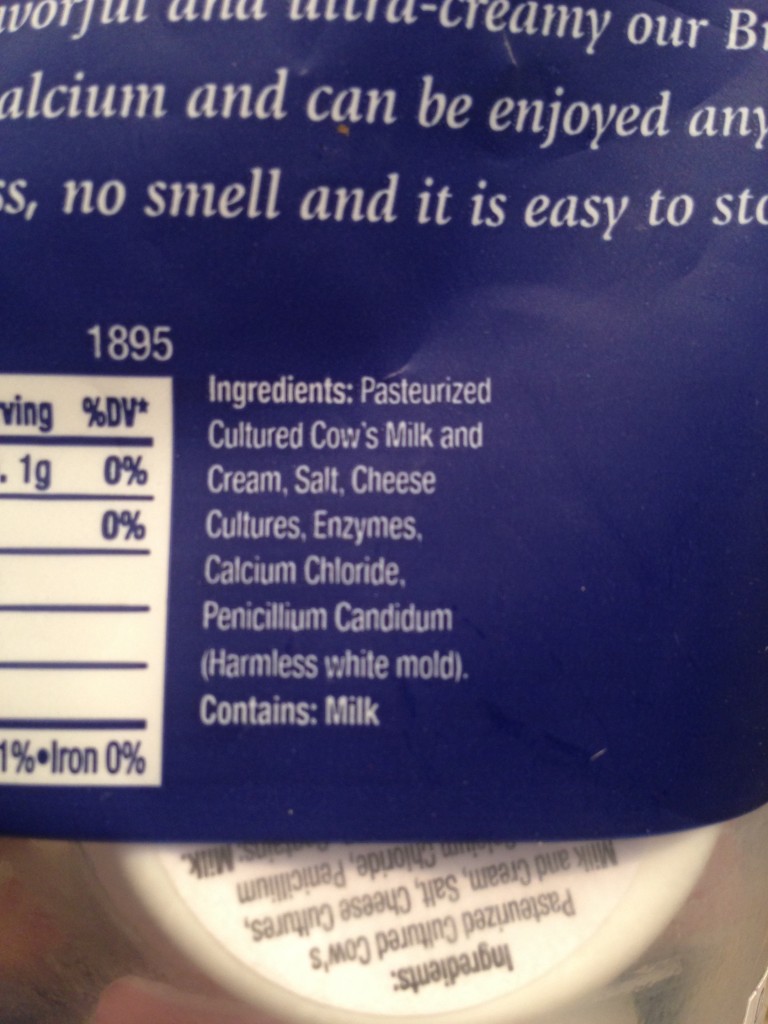
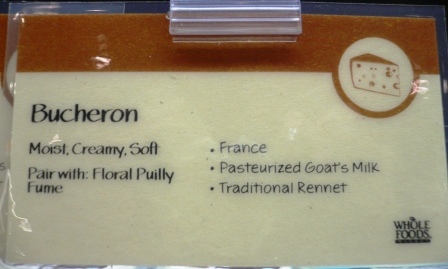
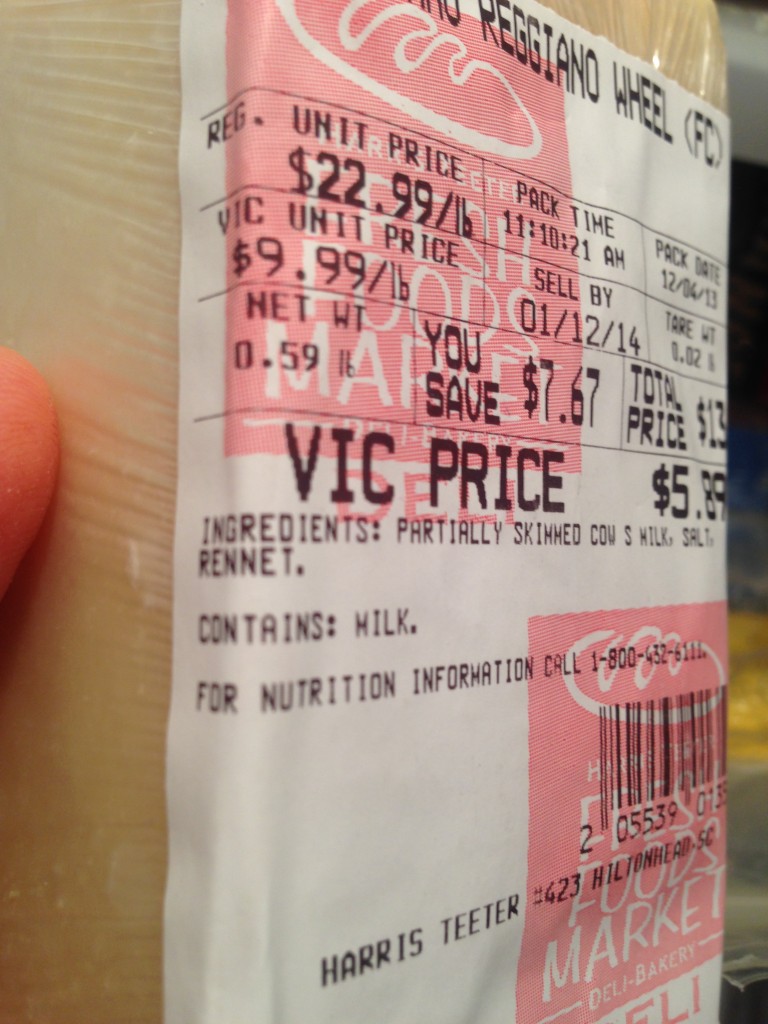
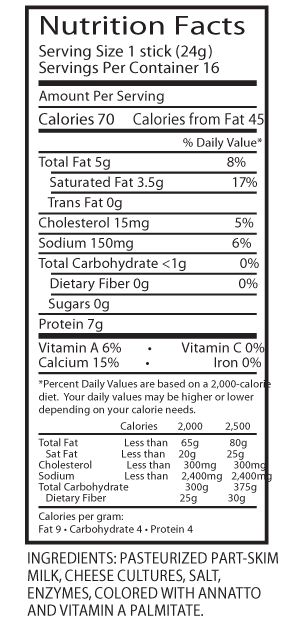
From a string cheese package
True vegetarian cheeses will specify vegetable, microbial or non-animal enzymes on their label.
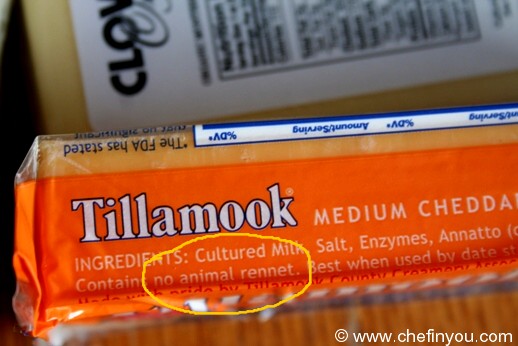
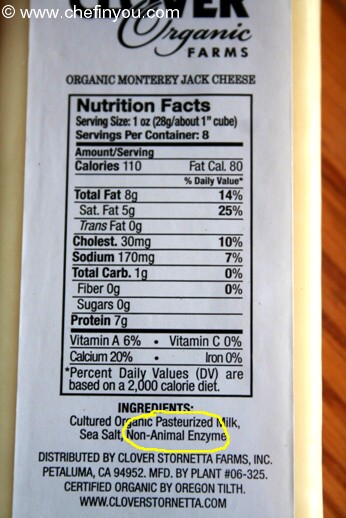
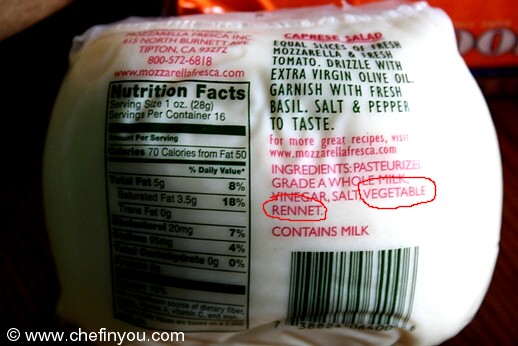
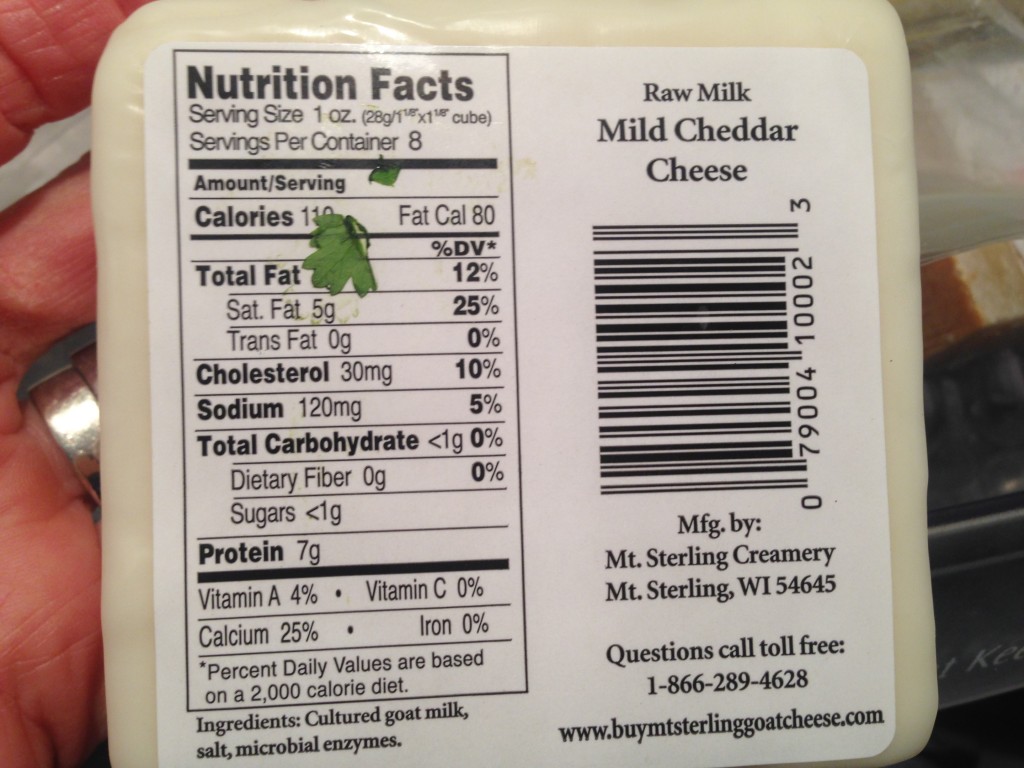
If you’re eating anything flavored with real cheese – crackers, macaroni – it’s more difficult to know the production method of the cheese used. Vegetarian buyers beware!
If you consume cheese and wish to be vegetarian, choose varieties that use plant or microbial enzymes. And while you’re being a discriminating consumer, purchase organic varieties to avoid the Bovine Growth Hormone (rBGH) & antibiotics used in the production of conventional dairy from dairy cows.
Read your labels! And remember different cheeses under the same brand will use different production methods. Learn how and why to become an avid food label reader in The 8 First Steps to a HAPPY™ Kitchen and The 9th HAPPY™ Step free online food programs.
If you are vegan or cheese-intolerant, be grateful for this ambiguous labeling headache you get to avoid!

{ 2 comments… read them below or add one }
A real Vegetarian, what we were when we walked or was put out of The Garden of Eden in No meat fish or eggs. NO MEAT, FISH OR EGGS ( anything that does or will have bones) The invented American style “vegan” has labeled the Vegetarian diet as
fish, chicken (turkey) and eggs. That’s a MEAT EATER.
As for vegans. A REAL VEGAN does not eat anything POLLINATED by INSECTS.
So that means a long list of fruits and vegetables, looonnnng list. The list I have
is has over 20. But we, as Americans do, change things to fit how we wana do it.
The list is heart breaking. I’ll give ya a few. mango, kiwi, pear, melons, banana, AVOCADO!, APPLES! OK, I’ll stop. More Stuff and things that will make you cry. By!
According to the Vegetarian Society, vegetarians don’t eat fish, meat or chicken. According to the Vegan Society, “Veganism is a philosophy and way of living which seeks to exclude—as far as is possible and practicable—all forms of exploitation of, and cruelty to, animals for food, clothing or any other purpose; and by extension, promotes the development and use of animal-free alternatives for the benefit of animals, humans and the environment. In dietary terms it denotes the practice of dispensing with all products derived wholly or partly from animals.”
Are you vegetarian or vegan Valerie?